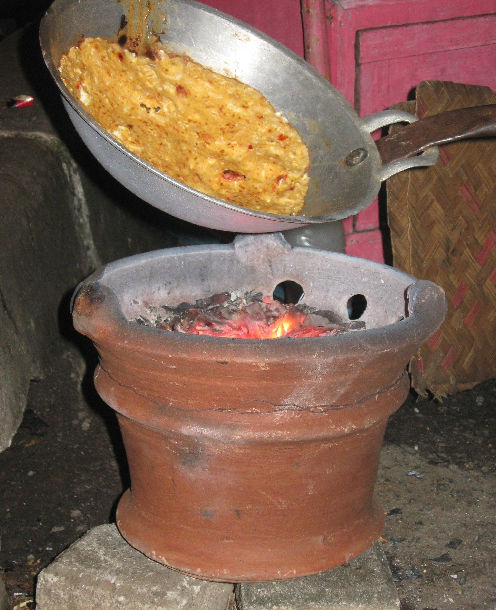The Kamado grill represents a timeless fusion of ancient tradition and modern culinary innovation. From its origins as a humble clay vessel to its status as a versatile powerhouse in outdoor cooking, the Kamado grill continues to captivate chefs and grill enthusiasts alike. This article delves into its fascinating history, evolution, and enduring appeal.
Ancient Roots: The Birthplace of Kamado Grilling
Asian Beginnings: The Chinese Yan Steamer
The story of the Kamado grill begins over 3,000 years ago in ancient Asia. Early Chinese innovations, particularly the Yan steamer, laid the groundwork for this unique cooking tool. These clay vessels provided a primitive yet effective method of cooking that inspired future adaptations.
Japanese Refinement: The Mushikamado
During Japan’s Kofun period (300–538 AD), the concept of the clay steamer evolved into the mushikamado, a cooker primarily designed for steaming rice. This iteration, fueled by wood or charcoal, marked the initial steps toward the charcoal-based cooking methods synonymous with Kamado grills today.
The Transition to Modern Kamado Grills in Japan
Introducing Domed Lids and Airflow Control
Japanese innovations transformed the mushikamado into an advanced cooking device. Key improvements, such as domed lids and precise airflow control, became defining features of the Kamado grill, enhancing its heat retention and cooking capabilities.
Ceramic Construction for Superior Performance
The addition of thick ceramic walls revolutionized the Kamado grill, allowing for even heat distribution and consistent cooking. This design also enabled the retention of moisture and smoky flavors, elevating dishes to culinary perfection.
Kamado Grills Enter the Western World
Post-War Popularity in the United States
American servicemen stationed in Japan during World War II introduced the Kamado grill to the West. Enthralled by its versatility, they brought these unique cookers back home, where they quickly became a novelty.
Commercial Success: The Big Green Egg and Beyond
In 1954, Ed Fisher founded Big Green Egg, adapting the traditional Kamado design with advanced ceramic materials. This innovation ensured durability and thermal efficiency, sparking a global Kamado grilling revolution. Other brands like Kamado Joe, Primo Grills, and Vision Grills soon followed, solidifying its status as a must-have culinary tool.
Key Features of Kamado Grills: Unmatched Performance
Superior Heat Retention and Efficiency
Kamado grills excel in heat retention, thanks to their thick ceramic or clay construction. This design enables precise temperature control, making them ideal for a variety of cooking techniques.
Dual Air Vents for Precision Cooking
Top and bottom vents provide unparalleled temperature control, allowing users to smoke at a low 200°F or sear at over 700°F.
Egg-Shaped Design for Even Heat Distribution
The distinctive egg-shaped design promotes even airflow, ensuring consistent heat distribution for grilling, smoking, roasting, and baking.
Modern Innovations in Kamado Grills
Advanced Cooking Systems
Features like Kamado Joe’s divide-and-conquer cooking system allow users to cook multiple dishes at different temperatures simultaneously, enhancing versatility.
Smart Technology Integration
Smart temperature controllers bring precision to Kamado grilling, enabling hands-free cooking by maintaining consistent temperatures.
Expanded Accessories for Culinary Creativity
From pizza stones and wok attachments to rotisseries and griddles, modern Kamado grills offer endless possibilities for creative cooking.
Size Variability to Suit Every Need
Kamado grills now come in a range of sizes, from portable models for camping adventures to large units designed for family feasts.

Why Kamado Grills Reign Supreme
Versatility Across Cooking Styles
Whether grilling, smoking, baking, or roasting, Kamado grills excel in delivering outstanding results for a wide range of recipes.
Durability and Year-Round Use
Constructed from high-quality materials, Kamado grills are built to last and perform in all weather conditions.
Superior Flavor and Efficiency
The combination of charcoal and ceramic infuses food with a smoky richness unmatched by gas or electric grills. Moreover, their efficient design requires less charcoal, making them eco-friendly and cost-effective.
A Thriving Community of Enthusiasts
Kamado grill owners are part of a vibrant community, sharing tips, recipes, and techniques through online forums, competitions, and social media groups.

Conclusion: The Kamado Grill—An Ancient Innovation for Modern Cooks
The Kamado grill is more than a cooking device; it is a bridge between ancient culinary traditions and modern innovation. Its origins in ancient China and Japan have evolved into a globally celebrated tool for versatile cooking.
Whether you're an experienced pitmaster or a novice exploring outdoor cooking, the Kamado grill offers unparalleled heat control, rich flavor infusion, and durability. It stands as a timeless testament to the art of grilling, ensuring that its legacy will continue to thrive in backyards and kitchens around the world.
